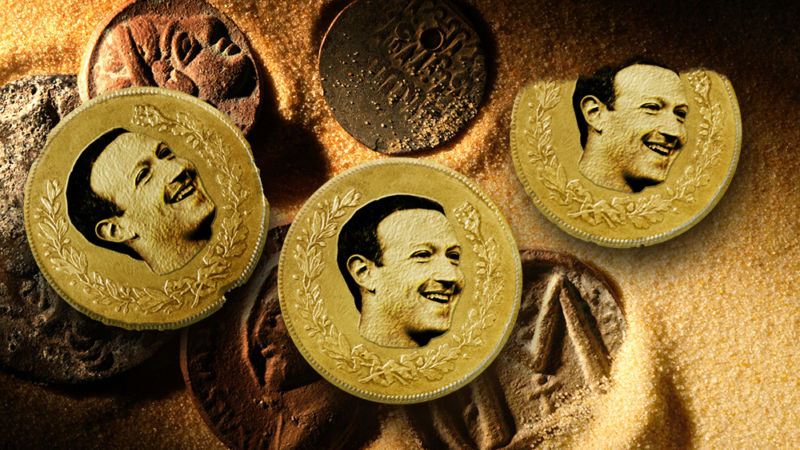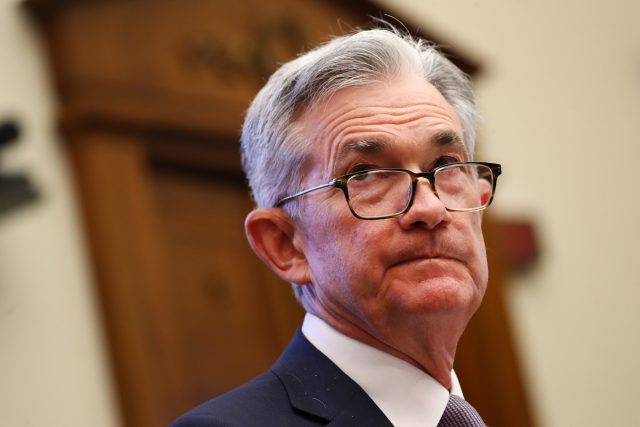
Mark Zuckerberg is known for his boundless ambition. He's had a longstanding fascination with Caesar Augustus, the Roman emperor who (in Zuckerberg's words) "established 200 years of world peace." So having conquered social networking, Zuckerberg has his eyes on something bigger: reshaping the global financial system.
Payment services from rivals like Apple and Google essentially offer an improved user interface for conventional credit card networks. Facebook, by contrast, is aiming to use blockchain-like technology to build a new payment network from scratch, complete with its own currency.
Facebook has assembled an impressive roster of launch partners for its Libra project. Visa, MasterCard, and PayPal are backing the effort. So are Uber and Lyft, as well as several venture capital firms and non-profit organizations.
But Libra's future remains murky. Facebook is months away—at least—from actually launching a network. The documents Facebook released in June left a lot of unanswered questions about how the network will actually work—and in particular, how the network will deal with the wide range of legal and regulatory requirements that apply to payment networks.
“Serious concerns”

Since Libra's unveiling, the project has gotten a chilly reception from some policymakers. On Wednesday, Federal Reserve Chairman Jerome Powell signaled skepticism about Facebook's plans for Libra.
“I don’t think that the project can go forward ... without there being broad satisfaction with the way the company has addressed money laundering, all of those things,” Powell said in testimony before the House Financial Services Committee. He added that the project raised "serious concerns" for regulators.
According to The New York Times, even some of Facebook's official partners are lukewarm on the project. Partners are slated to contribute $10 million each to help fund the launch of the network. But the Times' Nathanial Popper reported in late June that "no money has changed hands so far," and he noted that some of the companies who agreed to lend their names to the project avoided making strong public statements in support of it.
That reflects significant uncertainty about how Libra will actually work—and if it's even possible to launch a network like this within the bounds of the law. Facebook is trying to build a payment system that combines the best characteristics of blockchain and conventional networks. But the result may wind up just being a contradictory mess that leaves almost everyone dissatisfied.
Libra will be optimized for performance

In the bitcoin network, thousands of computers called full nodes work together to maintain a shared ledger of bitcoin transactions. Bitcoin's shared ledger is organized in a sequence of blocks—hence the term blockchain. Nodes use a computationally expensive technique called "proof of work" to decide who gets to add the next block in the chain. Each block contains a list of new transactions that becomes part of the official bitcoin transaction history.
At a high level, the Libra network is designed to work the same way. A group of computers distributed across the Internet will maintain a shared ledger of Libra transactions. To make a Libra payment you'll submit a cryptographically signed transaction to one of the nodes in the network so it can be incorporated into the shared ledger.
But Facebook deliberately departed from the bitcoin template in some important ways—changes that are designed to avoid the bitcoin network's shortcomings.
The most fundamental difference: the bitcoin network is fully open, while Libra isn't. Anyone with significant computing power can participate in bitcoin's process for verifying bitcoin transactions, a process known as mining because participants win newly created bitcoins. By contrast, participation in Libra's transaction clearing process will be limited to a few dozen pre-approved organizations that are members of the Libra Association: those are the partners like Visa, MasterCard, and Uber we mentioned at the start of this story.
This design locks out potential troublemakers, allowing Libra to use a more lightweight consensus mechanism: one that won't consume vast amounts of computing power—and energy—like bitcoin's proof-of-work approach.
Bitcoin's developers have maintained a hard cap on the size of blocks in the bitcoin blockchain. This keeps down the bandwidth and storage costs of running a bitcoin node, which allows small organizations and even individuals to participate. But the result of this is that the network can only process a handful of transactions per second.
The Libra network is designed for much higher throughput. "We anticipate the initial launch of Libra protocol to support 1,000 payment transactions per second," Libra's technical white paper states.
The bitcoin network adds new blocks to the blockchain once every 10 minutes, on average, and experts recommend waiting up to six blocks before considering a transaction final (the more blocks that appear after a particular transaction, the harder it will be to reverse the transaction). Hence, an hour can go by before bitcoin transactions are considered truly final.
Libra aims for a much shorter 10-second finality time. This is easier for Libra to achieve because it has a much smaller number of validation nodes, each of which can be assumed to have fast network connections.
reader comments
228